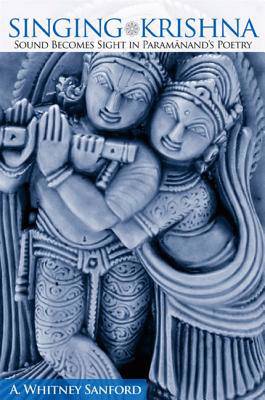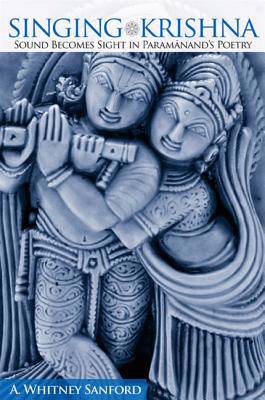
- Afhalen na 1 uur in een winkel met voorraad
- Gratis thuislevering in België vanaf € 30
- Ruim aanbod met 7 miljoen producten
- Afhalen na 1 uur in een winkel met voorraad
- Gratis thuislevering in België vanaf € 30
- Ruim aanbod met 7 miljoen producten
Zoeken
€ 151,45
+ 302 punten
Uitvoering
Omschrijving
Singing Krishna introduces Paramānand, one of north India's greatest medieval poet-saints, whose poetry has been sung from the sixteenth century to the present in ritual service to the Hindu deity Krishna. A. Whitney Sanford examines how hearing Paramānand's poetry in ritual context serves as a threshold for devotees between this world and Krishna's divine world. To "see Krishna" is a primary goal of the devotee, and Paramānand deftly constructs a vision through words. Sanford employs the dual strategies of interpreting Paramānand's poems--which sing the cycles of Krishna's activities--and illustrating the importance of their ritual contexts. This approach offers insight into the nature of the devotional experience that is not accessible by simply studying the poetry or rituals in isolation. Sanford shows that the significance of Paramānand's poetry lies not only in its beauty and historical importance but finally in its capacity to permit the devotee to see through the ephemeral world into Krishna's world.
Specificaties
Betrokkenen
- Auteur(s):
- Uitgeverij:
Inhoud
- Aantal bladzijden:
- 218
- Taal:
- Engels
Eigenschappen
- Productcode (EAN):
- 9780791473955
- Verschijningsdatum:
- 13/03/2008
- Uitvoering:
- Hardcover
- Formaat:
- Genaaid
- Afmetingen:
- 164 mm x 235 mm
- Gewicht:
- 453 g

Alleen bij Standaard Boekhandel
+ 302 punten op je klantenkaart van Standaard Boekhandel
Beoordelingen
We publiceren alleen reviews die voldoen aan de voorwaarden voor reviews. Bekijk onze voorwaarden voor reviews.











